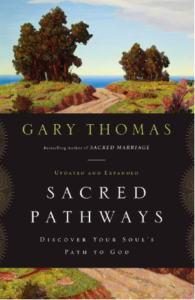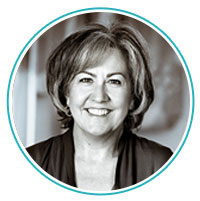Do you ever feel perplexed by comments you hear regarding how someone learns, feels or experiences God?
Some people love to study, researching original languages and their varied meanings and nuances to learn more of God. Others talk about the experience of connection through music or art, while others go on a hike or work in their garden; each feeling so close to God through creation. Maybe none of these ways are your way of connecting with God. Is there something wrong with you because listening to a sermon or singing a song or hiking in creation or reading and studying aren’t ways you think about, feel or experience God?
Photo by Matthew T Rader on Unsplash
Like many examples of our inner critic, faith is an area that can (and does) come under attack from within and without. If we think that there is only one right way to connect with God and we’re not getting anything out of that one way, we might determine that we’re not practicing our faith well, or perhaps we don’t actually believe; or maybe we question whether God in fact cares about us. Either/or, black or white thinking is a human construct and limits the infinite God to a box of our own construction. If you’re struggling with a small view of God, I want to tell you, you are normal.
Nothing is wrong with you. As a matter of fact, there is at least one person who was curious about all the different ways people connect most fully to God. His name is Gary Thomas. He spent a lot of time researching this topic and wrote a book about his findings. His work is titled Sacred Pathways.
Mr. Thomas found that there are nine measurable ways people connect with God. He determined through his research that we have a preferred path of connection and will have the other nine pathways in either equal or descending order of preference. In his book he shares his journey of faith struggle that prompted his research. When something is personal and a story is connected to it, there is a legitimacy in the offering in my humble opinion.
These nine pathways of connection are presented as invitations to us to try them out to determine our preferences. At the end of each chapter there is a self-assessment that you can respond to, helping determine how strong a preference that pathway is for you. Since the book was published in 2010, different organizations have taken the assessments within the book and put them online, made available for us to interact with. Here is the link to one such organization if you’re curious about your preferred sacred pathway.
Action step: consider how you prefer to connect with God. If you’re curious, take the free assessment linked to above.










 Hi there! I'm Lisa. I am a native California girl married to my best friend, Colin; we currently live and work in the Silicon Valley. I am privileged to be mom to two fantastic grown sons and mom-in-law to a wonderful daughter.
Hi there! I'm Lisa. I am a native California girl married to my best friend, Colin; we currently live and work in the Silicon Valley. I am privileged to be mom to two fantastic grown sons and mom-in-law to a wonderful daughter.